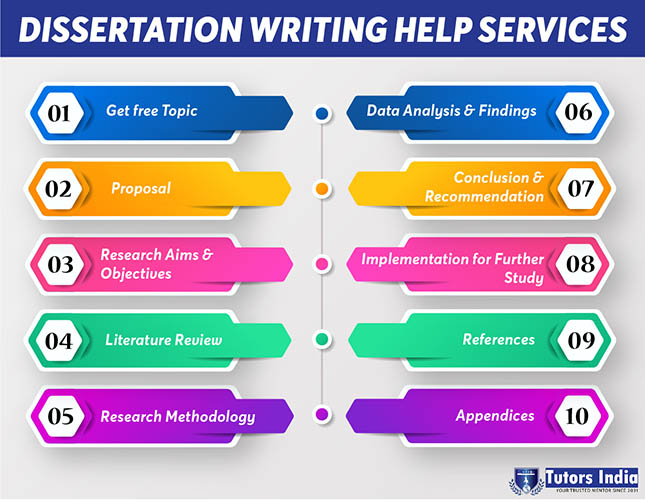How to Write a Master’s Medical Dissertation Step-by-Step Guide
The medical student’s dissertation transforms them into a physician and students. Some fundamental procedures are the heart of medical dissertation writing process, including In all medical contexts,
- Understanding the scientific method
- Designing the hypothesis
- Collecting and assessing evidence
- Successfully communicating obtained knowledge
- Thinking scientifically and critically
Preparing medical dissertation entails a collaborative effort between the student and the supervisor. Such efforts begin with the research topic selection and continue writing. An appropriate dissertation framework comes in useful during this process. You can also use some helpful hints to ensure a seamless dissertation.
Tutors India has highly qualified professionals who have more than years of experience in medical dissertation writing services provided for master’s students.

Tips for Medical Dissertation writing
Some writing hints can be noticed to aid in producing high-quality work. These suggestions include:
It’s critical to plan the content you want to cover in your medical dissertation and health science dissertation.
1) Chapter titles
2) Chapter sub-titles
3) Names for all figures and tables
4) Pertinent notes and comments should be included in such an outline.
Ensure the outline covers all of the important aspects of the medical dissertation writing. After that, provide the strategy to your supervisor for review and, if necessary, guidance.
Step-by-step guide on how to write ideal medicial dissertation
Step 1: Create a good ‘Title’ for your thesis. The title serves as an introduction to your thesis’s substance. A good title should be under 65 characters long, free of abbreviations and grammatical errors, and free of stop words like ‘a’, ‘an’, ‘the’, ‘of’, ‘but’, and so on.
Step 2: Write an ‘Abstract’ for your thesis. An abstract is a short introduction that tells the reader why you did your research. What has already been done in the discipline, where are the gaps, and how will your research address those gaps?
Write an ideal abstract
- Give some background information about your subject.
- Describe the problem’s importance and what is known about it.
- Clearly state the study’s aims to the readers.
- No information other than the problem under investigation should be included.
Step 3: The Introduction should come after the abstract for medical dissertation.
Step 4: Materials and Methods, This section should be formatted as follows:
- The environment in which you did your research is the setting.
- What materials were used in the study, and information about the study participants are included in the sample.
- What factors were taken into account while deciding whether or not to include or omit somebody from the study? What factors were evaluated to include or exclude any person in the study?
- Inclusion and exclusion criteria factors were evaluated to include or exclude any person in the study?
- Measurement tools- information on the procedures and equipment used to assess the study’s outcomes.
- What independent and dependent variables did you control or modify during the experiment, and what did you assess as the outcome?
Step 5: Write the “Data Analysis.”
Step 6: Write the ‘Results’ section to provide the study’s conclusion. Your findings can be presented as a text, table, figure, or illustrative graphs, but keep in mind the purpose of your research, and include no result that does not meet the study’s goal.
Step 7: The most important step is incorporate the ‘Discussion’ of your findings for medicial and health dissertation. The following points should be discussed in an ideal discussion:
- The most important results of your study
- Your study’s strengths and weaknesses compared to other research in the sector.
- A message for professionals and policymakers to remember.
- Questions your study couldn’t address so that more research can be done.
Step 8: Discuss the ‘Limitations of your study after the conversation.
Step 9: Include your ‘References’ at the end of your thesis. Make a list of all your references, so you don’t forget anyone.
Conclusion
The quality of your dissertation is determined by the topic you choose, whether it is a completely scientific experiment, a clinical trial, or a social research study focusing on patient experiences. Tutors India assists you with a wide range of services, from selecting a dissertation topic to completing your master’s dissertation with the required grade.
References
- Sanjay Misra A Step by Step Guide for Choosing Project Topics and Writing Research Papers in ICT Related Disciplines ICTA 2020: Information and Communication Technology and Applications pp 727-744.

 Previous Post
Previous Post Next Post
Next Post